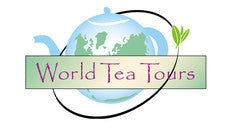
For some, drinking tea is a daily habit done without particular thought. For others, it is more ritualistic, involving focus and fore-thought. For a few others though, it is an extension of their very existence. An ever-present element of their world. This is the case for a tea village where nearly everything in the inhabitants’ lives, subtly or overtly, revolves around tea. One such village is Yellow Meadow or Huang Tian in Chinese. In the mountains outside of Nanping city in Fujian province, the small village has been quietly producing green tea for generations. It has been their sustenance, both financially and physically. In past days of famine and drought the tea leaves were just about the only thing available to eat. In the 1980’s, with the flooding of the village to make way for a hydro-electric dam in the nearby river, it was tea that continued to guide the destiny of the people. They needed to relocate and chose a place where they could grow tea again rather than move to a more urban setting. The land they chose had never been used for farming so, with vision toward a sustainable future, they decided to grow tea organically. For a poor village, the cost of chemicals was also prohibitive. So too was the expense of going through the expensive organic certification process. But the main reason, as the head man of the village told me, was that the tea grew and tasted better when they just let it grow on its own and with planting bamboo between the tea rows. An interesting side result was the spontaneous growth of a new kind of mushroom, aptly called “tea tree mushroom”.
I’ve been fortunate enough to visit this village a number of times through the past 25 years. I’ve gotten to know some of the villagers and always feel welcomed as if I was a family member who had been away for a long time. Tea has a way of doing that I guess. I’ve also brought World Tea Tours groups there and we are always warmly welcomed and met by several of the leaders of the village. On one visit, after hiking up the mountain and wandering in the tea fields, we made our way back to the home of an elderly couple, Mr. and Mrs. Hu (nearly everyone in the village is named Hu). They are the parents of some dear friends of mine, brothers Hu Zong Yao and Hu Zong Jian. The lady who accompanied us in the tea fields and showed us the “modern machinery” they had recently started using (a pair of modified hedge trimmers), collected the leaves that we harvested and, back in the Hu family kitchen, rolled and then fried the jade green leaves in the same pan as they used to cook their meals. One could tell that this was simply a regular part of life, just like cooking the other vegetables.
Soon the tea was served in the front room of the newly built yet modest home. But before we sipped Mr. Hu stood up and read a speech he had written especially for the occasion of our visit. It was formal. It was heart-felt. He welcomed this group of visitors from far away and invited them all into his home and into their lives. We drank their tea. We became part of their family. More than a few of us wished we could just stay in the village. We could work for tea! In fact, one of the group did stay. But for that story, you’ll have to ask Babette.
I count myself very lucky indeed to have had several such experience in my tea travels. I like to think that I have tea-brothers and sisters around the world; tea-kin I guess you could say. Relationships that have transcended simple acquaintance or business but with undeniable roots in sharing a simple cup of tea together.






